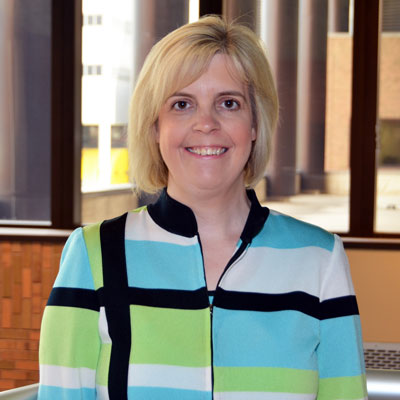Nurses Always Find a Way to Communicate Care to Patients Who Don’t Speak Our Language

Many say that love is the universal language. I agree, but I’ve found that care is also universal.
In 1999, I participated in a service-learning trip to Mexico through my baccalaureate nursing program. My colleagues and I shadowed staff in Mexican hospitals to learn about health care in a foreign country. Before I arrived, I only knew a couple of Spanish words. Sadly, leaving Mexico, I did not know much more. However, I did learn we can display our care and effectively communicate through our actions, no matter what language our patients speak. During my first nursing course, I learned that more than 90% of each interaction is nonverbal, and my trip to Mexico reinforced that.
At that point in my training I was already an RN, so I was able to shadow a surgical oncologist. He let me participate in multiple aspects of oncology care and introduced me to his patients as an oncology nurse from the United States.
One of the patients with skin cancer had a small drainage tube in her cheek from surgery. The doctor let me remove the gauze and gently take the tube out of the woman’s incision. Nurses participate in a lot of surgical and other types of dressing changes, so this was very familiar to me. I then applied gauze to her face. She smiled at me the whole time and, although she did not speak English, she thanked me repeatedly in Spanish. At that moment, I really wished that I had known her language so I could verbally communicate with her on my own, rather than through my interpreter. However, I was able to say goodbye to her in Spanish and, through my interpreter, gave her instructions for continued care for her wound at home.
Throughout the week, I saw the patient and her family walking through the nearby park, which I crossed through each day to get to the clinic. She would point to me from afar and say something to her family. I always waved back.
The day before I was scheduled to leave, I saw her standing outside the outpatient clinic. She saw me and my interpreter, came up to us and, through the interpreter, spoke about how she walked to the hospital each day to find me. She brought her camera and said she wanted a picture of me because I had cured her. I was in awe. Initially I was so concerned because I couldn’t verbally communicate with her, but during that 10-minute encounter, I demonstrated my ability to care without saying a word on my own. I had developed a therapeutic relationship through my actions.
Often, we are so worried about saying the wrong words to patients and their families. Yes, we must focus on our wording, but we also need to be aware of our actions. Our nonverbal cues are powerful and can traverse any language barriers.
Now whenever I look through pictures from Mexico, I always stop and spend extra time reflecting on the picture of me and that lovely patient. It reminds me how she fully received my caring actions, despite our language barrier.
